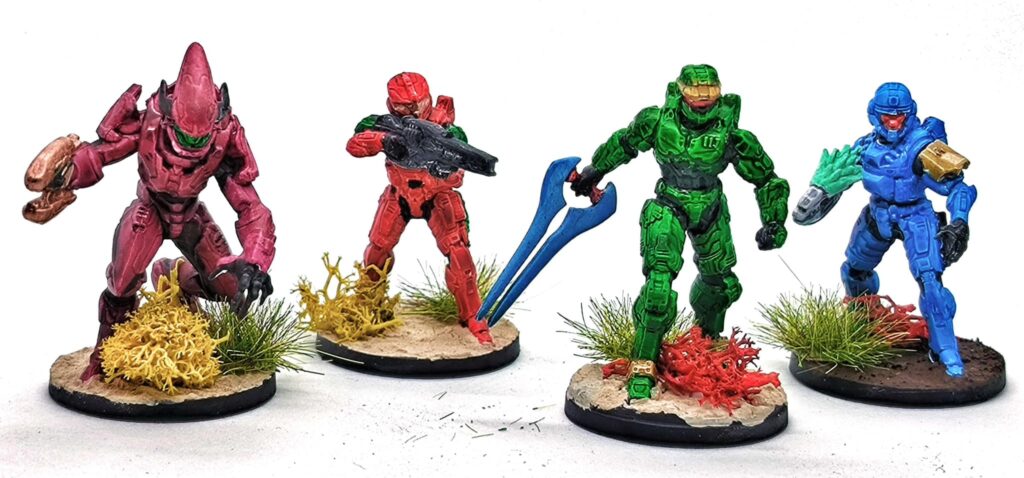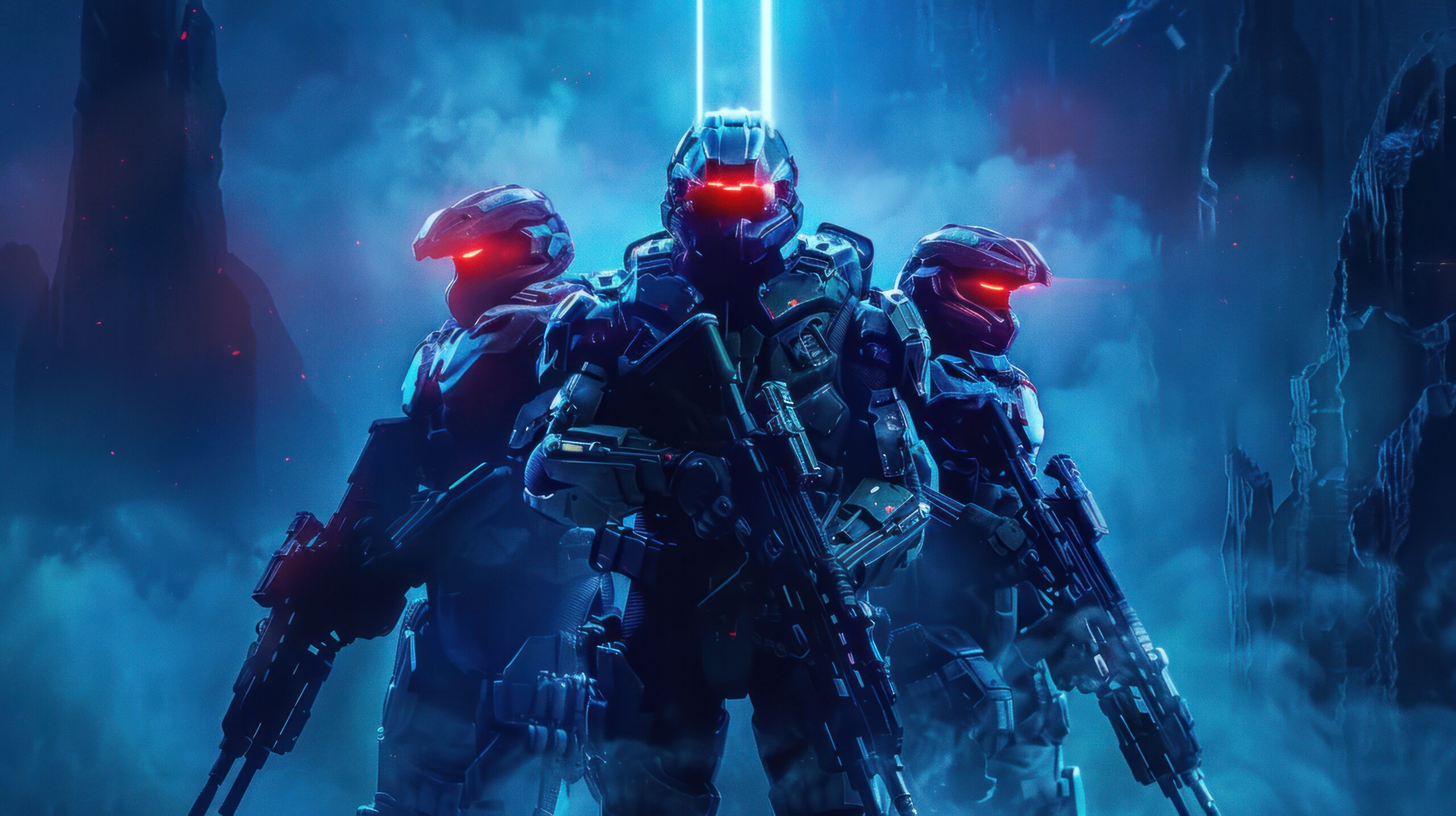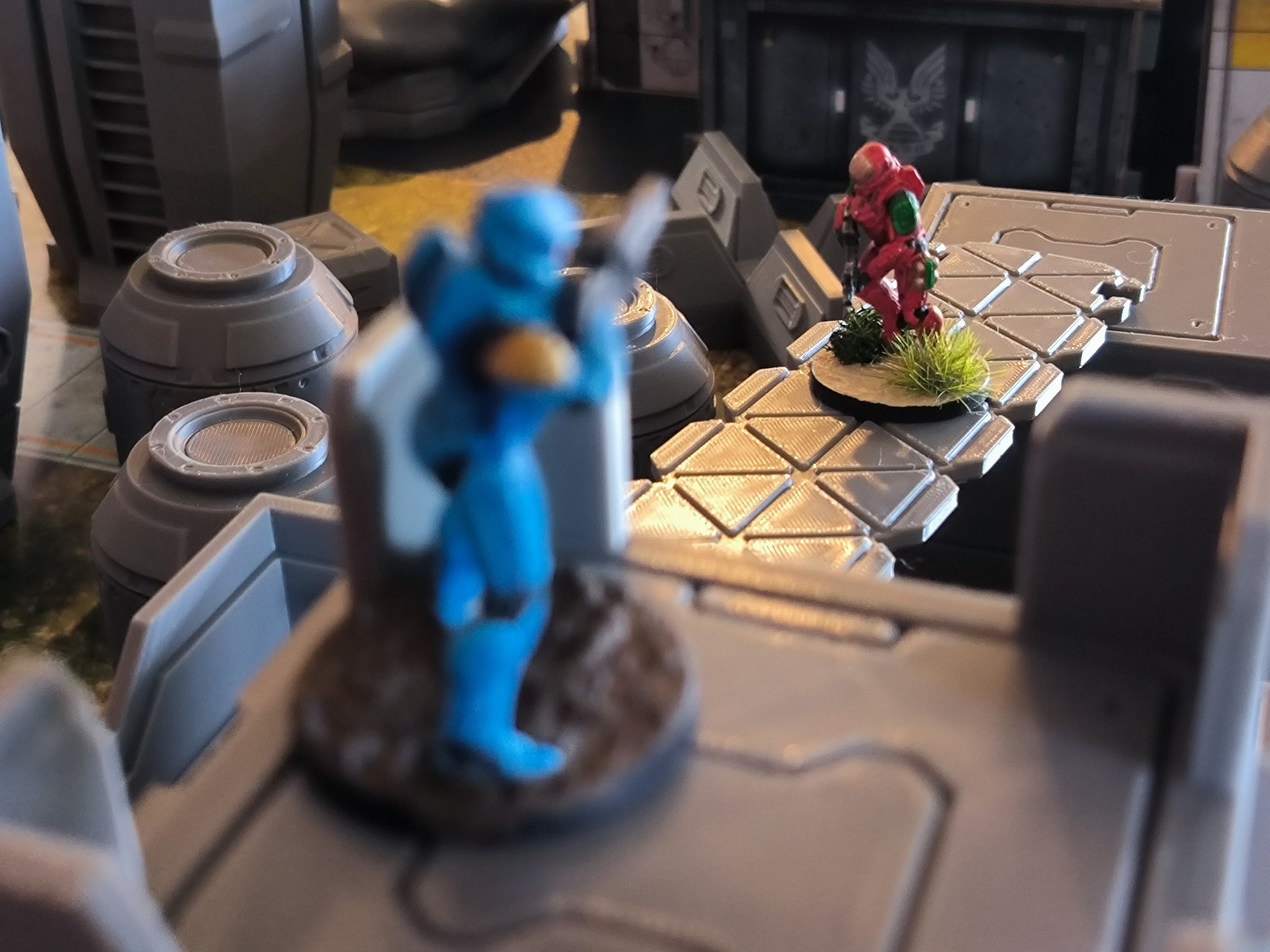Focus on scenarios: mission objectives instead of just kills
Anyone playing Halo: Flashpoint for the first time is usually playing a training game – learning the basics, moving figures, shooting, trying out close combat. But as soon as the rules are in place, the real arena opens up: scenarios with clear mission objectives. And this is exactly where the strength of Halo: Flashpoint lies – it’s not just about taking out as many enemies as possible, but also about playing cleverly with mission objects, respawns and positioning. This, and especially the respawns, are also the biggest differences to other skirmisher games. This is where Halo:Flashpoint comes very close to the video game.

The starter boxes already contain several varied scenarios that provide plenty of variety. Let’s take a closer look at them:
Overview table
| Scenario | Goal | Victory conditions | Playing time |
|---|---|---|---|
| Slayer | Eliminate opponents | Reach the previously agreed number of kills (4 / 8 / 12) | Short / Medium / Long (kill limit) |
| Oddball | Hold the skull | 11 points by holding or melee hit with skull | Up to max. round 6 |
| Capture the Flag | Steal the opponent’s flag and bring it back | First player with 3 points wins | Up to max. round 8 |
| Strongholds | Secure control zones | Victory with double the total number of VPs or majority after round 6 | Until victory condition or max. round 6 |
| Stockpile | Collect and deliver power seeds | 5 seeds in the depot or majority after round 8 | Until victory condition or max. round 8 |
| Total Control | Hold all three control zones simultaneously | Achieve 3 points by controlling all zones | Until victory condition or max. round 8 |
| Attrition | Persevere & manage respawns | Opponent has no more combat-capable models | Variable, until one remains |
| VIP | Protect VIP / eliminate opponent | 4 points due to opponent’s VIP kills or majority after round 8 | Until victory condition or max. round 8 |
Slayer – Classic team kill mode
Probably the best-known scenario from Halo: simply eliminate the opponents. Both players decide before the game how many kills are required (e.g. 4 for short, 8 for medium, 12 for long). Every kill counts – regardless of whether it’s from gunfire, close combat or an unfortunate fall from the roof. If a player reaches the target number, the game is over immediately.
👉 Perfect for quick matches or as a starter.
Oddball – Hold the skulls!
There is a flaming skull on the playing field and whoever picks it up collects points as long as they hold it. But be careful: the holder can neither sprint nor shoot! If it is knocked out or moved, the skull falls and can even scatter. Points are awarded at the end of each enemy activation or when the skull is used as a weapon in close combat.
👉 The winner is whoever collects 11 points first or is ahead after round 6.
Capture the Flag – classic with flag theft
Each player has a base with their own flag. The aim is to capture the opponent’s flag and bring it to your own respawn marker. Points are only awarded if the flag is successfully returned – it then immediately returns to its starting point.
👉 Whoever gets 3 points first wins. Typical Halo – and involves a lot of tactics, because you have to attack and defend at the same time.
Strongholds – Control counts
Three fixed zones on the playing field score victory points at the end of each round. However, they are only secured if there are no opponents in the zone. The markers themselves have different values (e.g. 1, 2 or 3 points).
👉 The game ends when a player has reached double the total number of points – or at the latest after round 6, the player who has collected the most points wins.
Stockpile – Secure energy cores
Several power seeds lie in the middle of the playing field. Players must pick them up and carry them to their own base. You are not allowed to sprint or shoot while carrying a seed – but you can throw it! Seeds can be stolen or collected again when they fall.
👉 Winning condition: 5 seeds in your own depot or the majority after 8 rounds.
Total Control – Rule over the map
At the beginning, three control zones are randomly determined. Whoever holds them all at the same time immediately receives 1 point – then the zones are re-rolled.
👉 The game ends when a player reaches 3 points or has the majority after 8 rounds. A scenario full of movement and quick turns.
Attrition – The resource war
This is all about perseverance: Both players only have a limited number of respawns. Once these have been used up, fallen models can only lie on the ground as “downed” – with the chance of being revived. If both players run out of respawns, the playing field shrinks round by round until there is only a bloody finale in the center.
👉 The winner is the one who still has combat-ready models at the end.
VIP – Protect the leader
Each team chooses a random VIP who receives more life points. If the VIP is eliminated, the opponent receives 1 victory point. If he dies, the next ally becomes the VIP – and so it goes on.
👉 The first player to collect 4 points or take the lead after 8 rounds wins. Particularly exciting, as you have to protect your VIP, but also actively bring them into the game.
Conclusion: More than just shooting
What sets Halo: Flashpoint apart from many skirmish games is the variety of mission objectives. Yes, you can still play Slayer and just shoot away – but the real strength lies in the scenarios. Whether it’s flag stealing, area control or skull hunting, every game feels different and rewards clever planning rather than just raw firepower.
So if you think Flashpoint is all about kills, you should take a closer look at the scenarios – because this is where the game shows its true depth.


